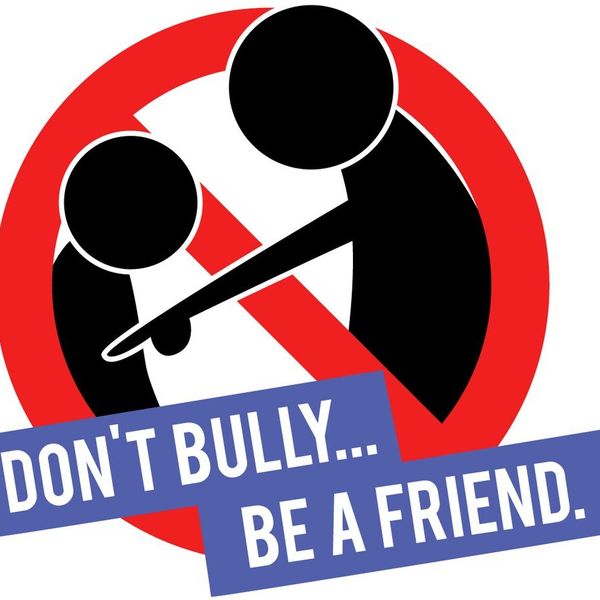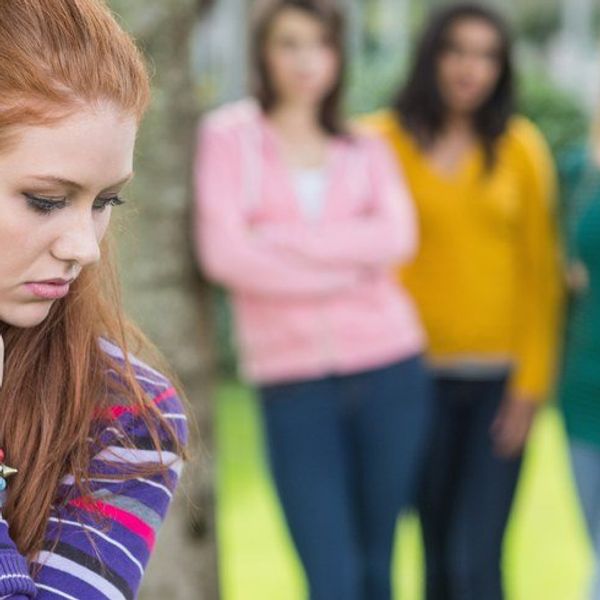I recently came across this article while scrolling through my Facebook feed. In it, a teacher recalls a lesson she taught her students using only apples and their words. The teacher presents two apples to her class. Both look to be in perfect condition but unbeknownst to the students the teacher had previously lightly dropped one of them on the floor a few times so the inside would bruise but not the outside. She gathered her students in a circle and they passed around the apples. The one she'd dropped they insulted and mocked the other they praised. Once each of the students had spoken to the apples the teacher cut into each of them. The apple that had been praised was perfectly fine the other was brown and rotting on the inside showing the young students that words hurt, though it may not show on the outside it certainly infects and distresses the inside.
According to the American Society for the Positive Care of Children 28% of children between the ages of 12 and 18 are bullied. Across all ages, starting in kindergarten, 1 in 3 children claim to have been bullied while attending school. I'm no mathematician but that seems like a grotesquely high statistic. Like apples, children keep their pain inside until they can no longer contain it. And, like apples, children keep their bruises for the rest of their lives. Words aren't just heard they're recalled and serve as a constant reminder of the brutality others see you with. Words, like actions create scars that a person has to learn to live with.
When I was in 1st grade I was bullied by my best friend's brother and his group of friends. As I was only 6 when this occurred I've managed to block out certain things that they might have said to me but, in my case, their actions spoke louder than their words. Because of them, I know what I frightened animal feels like when it's cornered. That feeling of complete and utter helplessness hasn't once left me. It's always at the back of my mind alert and seeking for exits. Because of my bullies, I have issues trusting people. My so called best friend used to watch as her brother and his gang cornered me on the playground. She, like so many other children, didn't do anything. Because she didn't know what to do. Bullies instill fear in their victims but also in the bystanders. The fear of a bystander is the fear of taking affirmative action to stop the bullying of one individual by transferring it onto themselves.
So many bullies could be stopped by a bystander standing up for the victim or telling an adult about what's happening. But kids are still scared and confused. This teacher not only instilled upon her students the power that words have over people, she also taught them how damaging those words can be and the lasting effect they can have on someone's body and mind. In recent years bullying statistics have gone up because of the internet. Cyberbullying is the new fad because people can hide behind their computer screens and scream insults at whoever they please.
I wish there was a way to show kids that words can hurt but they can also heal. A great way to negate the power of a bully, cyber or otherwise, is to console the victim. Assure them that the words spoken were untrue. Assure them of their worth as a person. Assure them that you are there for them, they aren't alone. Bullies are afraid of confidence. A confident child isn't an easy target and most likely bullies are children lacking attention or affirmation in their everyday life so they lash out and taking out that frustration on someone else.
I grew up from the quiet, shy 6-year-old I used to be but now, as a 21-year-old college student I can still feel the effects of my bullies' words and actions. Kids need to be taught that everything they say and do has a cause and effect. They need to be taught to care about these effects. They need to know that a word that takes mere seconds to be uttered can have a lifetime of consequences.





















